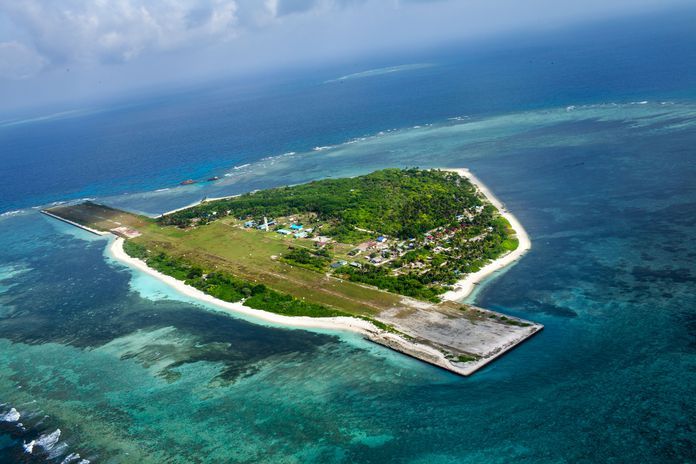The Department of Foreign Affairs hits the illegal presence of Chinese vessels around Pag-asa Island as a “swarming technique” to occupy the area in a statement released yesterday, April 4, 2019.
Here’s the DFA statement in toto.
The Pag-asa Islands are part of the Kalayaan Island Group (KIG), which is an integral part of the Philippines over which it has sovereignty, sovereign rights and jurisdiction.
Accordingly, the presence of Chinese vessels near and around Pag-asa and other maritime features in the KIG is illegal. Such actions are a clear violation of Philippine sovereignty, sovereign rights and jurisdiction, as defined under international law including the 1982 United Nations Convention on the Law of the Sea (UNCLOS). Moreover, it has been observed that Chinese vessels have been present in large numbers and for sustained and recurring periods—what is commonly referred to as “swarming” tactics—raising questions about their intent as well as concerns over their role in support of coercive objectives.
Such actions when not repudiated by the Chinese government are deemed to have been adopted by it.
The presence of Chinese vessels within the KIG, whether military, fishing or other vessels, will thus continue to be the subject of appropriate action by the Philippines.
For the record, the Philippines has consistently manifested its position on the Pag-asa Islands and on the KIG, and its objections or concerns over illegal, tension-raising or coercive activities, through diplomatic actions, including notes verbales and in meetings with the Chinese side, including the Philippines-China Bilateral Consultation Mechanism (BCM).
We call on concerned parties to desist from any action and activity that contravenes the ASEAN-China Declaration on the Conduct of Parties in the South China Sea (DOC), as these generate tension, mistrust and uncertainty, and threatens regional peace and stability.
While negotiations for a Code of Conduct (COC) in the South China Sea are ongoing, the Philippines calls for the full and effective implementation of the DOC. We cannot emphasize enough the imperative to build and promote mutual trust and confidence, to exercise self-restraint in the conduct of activities; and to avoid actions that may further complicate the situation and undermine peace, security and stability in the region.
The Joint Statement issued by the Philippines and China on the occasion of last year’s State Visit of President Xi Jinping to the Philippines includes an agreement by both sides to exercise self-restraint with respect to activities in the South China Sea that would complicate or escalate disputes and affect peace and stability. We call on the Chinese government to adhere to this consensus reached at the highest levels, down to its agencies and its military.
Source: Department of Foreign Affairs

